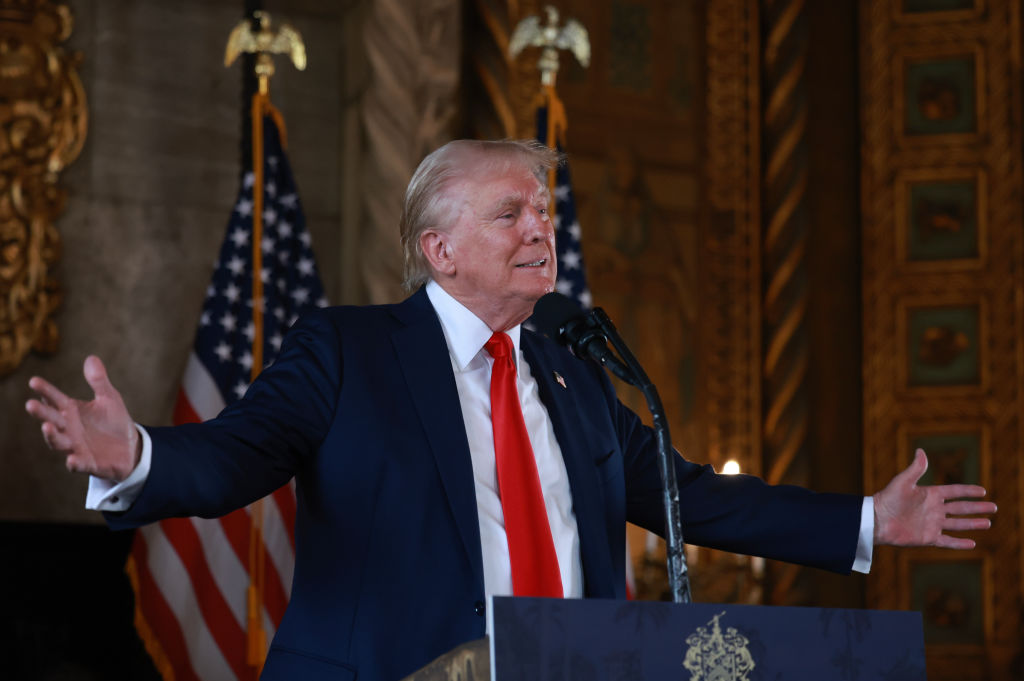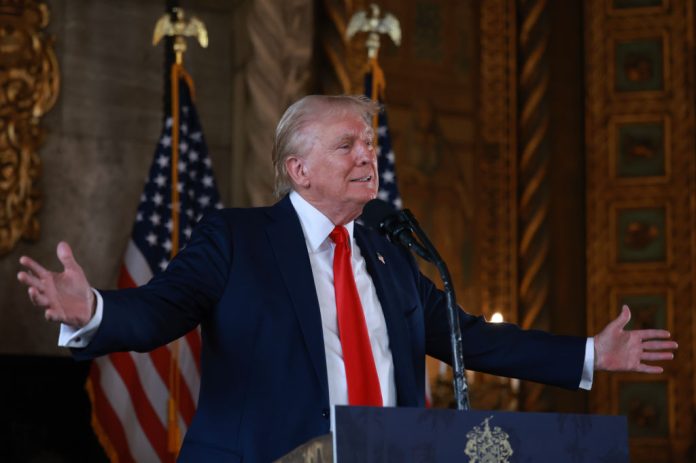
Almost immediately after the armed forces of the Russian Federation entered Ukraine in February 2022, the United States and its partners declared harsh sanctions on the country. President Biden boldly stated that the sanctions would devastate the ruble and bring the Russian economy to its knees. Of course, such devastation has failed to materialize in full, and the Russian economy rolls on—as Ohio’s Senator J.D. Vance declared in March 2023, Washington was not prepared for “how good the Russians would be at evading sanctions.” How did Biden miss the mark and get Russia so wrong?
The sun has set on America’s unipolar moment. The network of international rules Washington helped implement (and has flourished within) are not palatable for the new poles of power in our international system. This matters. Worse, the U.S. is struggling to remain a cohesive international actor, let alone a pole of power in the new international system.
Washington’s adversaries are well aware that America’s two ruling parties cannot agree on the most basic elements of foreign policy, including the future of funding Ukraine, options to arm Taiwan, plans to combat China, and the utility of NATO. Complicated by decades of offshoring and the criminal underfunding of strategic resilience capabilities, Washington now offers a weak value proposition to its traditional international partners. Meanwhile, Moscow recognizes that, in the new unfolding world order, the West’s “arsenal of democracy” is not so strong as it once was. Western sanctions do very little in the shaping of behavior space in a global climate where you can spin on your heels and shake hands with Saudi Arabia, India, and China.
Washington needs a new value proposition to maintain its relevance as an independent pole in the emerging multipolar international order. There are key lessons we should take from the fascinating world of Russian war propaganda. Here, Russia portrays itself as traditionalist, patriotic, and united. The power of traditionalist values is becoming clear. Moscow can turn to many states—post-Soviet states, the Middle East, much of Asia and Africa—with arms wide open. The 2024 BRICS Summit illustrated the allure of a new global community of states, separate from the legacy liberal West.
Through BRICS, and some three years of proxy war in Ukraine, Russia has crafted a universalist brand. While in many ways it portrays itself as traditionalist, Moscow is ultimately willing to partner with anyone who prefers an alternative to the West. The bar is low. Most of the world is far from progressive when it comes to values. For instance, Washington touts its gender equality bona fides to countries like Saudi Arabia, where letting women drive is viewed as “a liberal idea.” A “woke” foreign policy only gets you so far, and the recent attempts to curb Russian behavior in Eastern Europe is further evidence that much of the world is opting for an alternative to the extant liberal Western ideal.
Russia’s behavior (and policy) now amounts to an almost total disregard for the liberal rules-based international order, as facilitated by the European and American bureaucratic apparatus. For Moscow, this apparatus is essentially deficient, lacking economically protectionist and traditional social values; the Kremlin clearly sees an opportunity to craft a desirable alternative structure. China has likewise consistently ignored international liberal rules and norms. Even countries like Hungary or Poland, which would prefer the anti-communist nationalism and sovereignty promoted by the American right-of-center, are prioritizing national interests before liberal values by involving themselves in programs like the China-CEE.
It is evident the West is faltering; the shine is rubbing off. This poses obvious challenges, so we must write new rules for the future of Western agility (perhaps even existence) in the future international system. As a starting point, Washington requires a new foundation: an American foreign policy that isn’t loathed by the Middle East, utterly ignorant of Africa, or unaware of the importance of careful, considered diplomacy in its relations throughout Asia; a foreign policy to competitively co-exist with non-liberal states and their growing network of like-minded partners globally; one that extols the virtues of national sovereignty and strong economies; a foreign policy that supports American innovation in all sectors of society, particularly one that can sustain itself (and its partners) in manufacturing.
A reinvigorated American foreign policy could kick-start the rejuvenation of a western-led proposition for the international system—a Monroe Doctrine 2.0, turning the Western hemisphere into a viable role model for all nations. Under President James Monroe, foreign policy doctrine was to oppose increased European influence and pressures on the Americas. A revived Monroe Doctrine could likewise curtail the cultural and economic pressures from not only European globalists, but also those from the East. It would ensure countries like Honduras do not align themselves with China. Such a system could be executed without firing a shot, the system could promote itself with positive investment programs, borrowing from the Beijing playbook.
A new American foreign policy would not simply focus on reconfiguring current relationships and strengthening smaller partners. It could also break new ground in strengthening relationships by not framing western liberalism around the traditionally narrow notions of “democracy.” Look at Denmark. Copenhagen is a democracy, but it is notably strict on immigration compared to neighboring European states. The EU punishes Denmark for its sovereign approach to navigating mass migration into the continent, repeatedly attempting to insert itself into Danish sovereignty. Where the EU struggles in its ties with nations like Hungary and Poland, a Monroe Doctrine 2.0 might prevail. Preserving European nationalism in both states is a value proposition Washington should consider harnessing. Crafting a network of strong nations that protect themselves and their people, without brandishing the labels of “autocratic” or “democratic” is the next logical step for any (hope of a) new Western-led order.
Subscribe Today
Get daily emails in your inbox
Currently, this vision for a new American foreign policy appears unrealistic. The Biden administration turned back some of the gains in the sphere of economic protectionism and the new American value proposition put forth by President-elect Donald Trump. Nevertheless, potential Republican gains in the coming years may in fact provide the opportunity for a total transformation of Washington’s global value proposition (and indeed, ability to attract those falling into Russia’s orbit). From America to Australia, the average voter today is concerned with wage growth and the price of milk at the grocery store—much less with the promotion of woke values in the hills of Afghanistan.
Washington and its community of like-minded partners across the globe form a dwindling club. Membership requests are drying up. The answer is not in a policy of radical isolationism that gives up the “exceptional” place America and liberal democracy writ large has on the world stage. The answer sits in our ability to rebrand and provide an attractive alternative to Russian and Chinese variants of international order.
A first step is rebuilding liberal Western cultural and economic power domestically. Western exceptionalism, pride, and conservative values in foreign policy at home must be restored. The U.S. and her partners like Australia share domestic ills like rampant homelessness, industrial offshoring, rising costs of living, and stagnant wage growth. A successful America on the world stage is strong at home and has a positive vision for a prosperous nation as well as an ambitious, values-based foreign policy.


